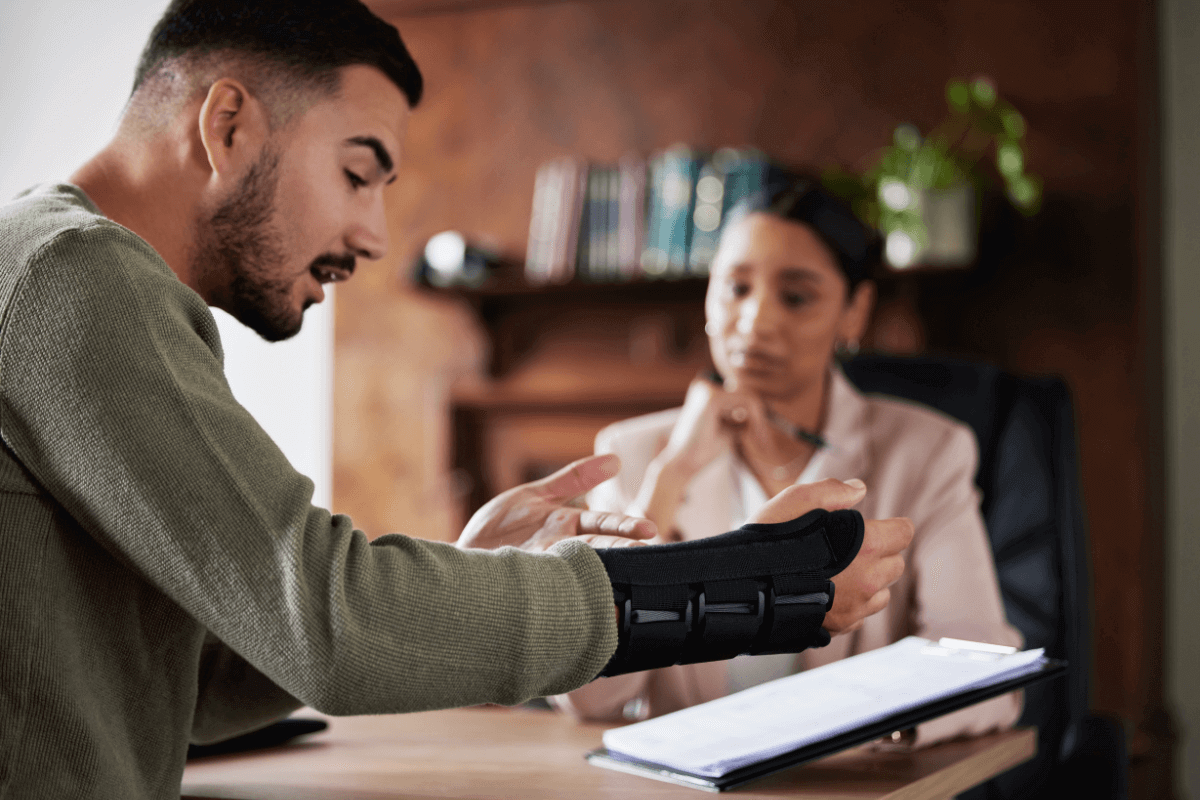
Partner at AKD Lawyers
Practice Areas: Personal Injury

The opioid crisis has changed lives across Louisiana and the nation. While these medications are prescribed for pain relief, misuse, addiction, and severe injuries have become far too common. In many cases, people who trusted their doctors or relied on pain medication found themselves harmed by the very drugs that were supposed to help them.
If you or a loved one experienced serious side effects, addiction, or injury related to opioids, you may have a legal case. This guide explains when opioid harm becomes a legal issue, how liability is determined, and what steps you can take with the help of a New Orleans personal injury attorney.
When Does Opioid Harm Become a Legal Case?
Not every adverse reaction to opioids qualifies for a lawsuit. To have a valid opioid injury claim, certain legal conditions must be met. If your injury or addiction can be linked to overprescription, poor medical oversight, deceptive pharmaceutical marketing, or negligent prescribing practices, your case may be eligible.
These are some situations where an opioid-related personal injury claim could apply:
- You were prescribed opioids for pain, and the dose or duration exceeded medical guidelines.
- A doctor failed to monitor your condition or warn you about addiction risks.
- You suffered an injury because opioids impaired someone else.
- You became addicted after being prescribed opioids, even though alternative treatments were available.
To succeed in a claim, you must show that another party’s actions directly led to your injury and that damages occurred as a result.
From 2013 to 2015, Louisiana recorded over 6,000 treatment admissions for opioid abuse—many stemming from prescribed use. — Louisiana Department of Health.
Legal Theories in Opioid Injury Cases
Several legal principles apply to opioid-related lawsuits. These include negligence, product liability, and medical malpractice. Understanding how each applies can help clarify your case.
Negligence in Prescribing
Doctors must follow standard medical practices when prescribing drugs. If they fail to consider your health history, ignore dosage guidelines, or skip regular monitoring, they could be regarded as negligent.
Product Liability
Drug manufacturers can be held responsible for failing to warn about risks or for making misleading marketing claims. Purdue Pharma and Johnson & Johnson have both faced legal action over opioid marketing.
Medical Malpractice
If a doctor or clinic ignored signs of dependency or prescribed opioids when it wasn’t medically necessary, they could face malpractice claims.
Louisiana introduced a 7-day opioid supply limit in 2018 for first-time prescriptions treating acute conditions, a policy aimed at curbing overuse and addiction risks. — Louisiana State Legislature.

Opioid Manufacturers in Court
Across the country, large pharmaceutical companies have been taken to court over their role in the opioid epidemic. These lawsuits often claim that companies pushed opioids aggressively without adequately warning doctors or patients about the risk of addiction.
Some cases have ended in massive settlements, while others have gone to trial. These outcomes show that courts are increasingly holding manufacturers accountable for their role in the crisis.
In lawsuits against opioid manufacturers, courts have found that deceptive marketing practices contributed significantly to public harm, laying the groundwork for personal injury claims. — National Law Review
How Opioid Use Affects Personal Injury Claims
Opioids affect more than health. They impact legal claims in car accidents, workplace injuries, and medical negligence cases. If someone is injured in a crash and opioids impair one party, determining liability becomes complex. Insurance companies may investigate whether opioid use contributed to the accident, which can change how fault and compensation are determined.
In cases involving addiction, insurance adjusters may also examine your medical records to see whether your doctor followed proper procedures.
Who Can Be Held Responsible?
Several parties may be held liable in opioid injury cases. Here’s a breakdown:
Table: Liability and Legal Responsibility in Opioid Injury Claims
| Party Involved | Potential Liability | Legal Basis |
| Prescribing Doctor | Overprescribing, failure to warn, negligent monitoring | Medical Malpractice |
| Hospital/Clinic | Lax oversight, institutional overprescription | Vicarious Liability |
| Pharmacy | Failing to flag suspicious prescriptions | Negligence, Regulatory Breach |
| Drug Manufacturer | Misleading marketing, failure to warn | Product Liability, Fraud |
| Employer | Exposure or encouragement of opioid use on the job | Workplace Safety Law |
Proving an Opioid Injury Case
To support a legal claim, you’ll need strong evidence. This might include:
- Medical records showing when and how opioids were prescribed
- Pharmacy logs showing dosage and frequency
- Toxicology reports linking an injury to opioid use
- Testimony from medical experts
- Witness accounts, if your injury involved an accident
it is also important to act quickly. Louisiana has a one-year time limit (prescription) for filing most personal injury claims, so waiting could hurt your case.
Past results do not guarantee future outcomes. Each case depends on its specific facts.
FAQs
Can I sue a doctor for prescribing opioids that led to my addiction?
Yes, if the doctor prescribed opioids irresponsibly or ignored warning signs of addiction, you may have a valid claim for medical negligence.
What if I was injured by someone else under the influence of opioids?
If the incident happened while the person was on the job, you may be able to file a personal injury claim against them and possibly their employer.
Are opioid lawsuits class actions or individual cases?
Some are part of larger mass torts or class actions, but individuals can also file their personal injury claims based on their unique circumstances.
How can I prove that opioids caused my injury?
Proof often includes medical records, toxicology results, expert opinions, and a clear timeline showing your exposure to or use of opioids.
Are there time limits for filing opioid-related injury claims in Louisiana?
Yes. Most personal injury cases in Louisiana must be filed within one year from the date of injury or when the harm became known.
Can family members file a claim for a loved one’s overdose?
Yes. If the overdose was due to improper prescribing or lack of warnings, family members may file a wrongful death lawsuit on behalf of the deceased.
Conclusion
Opioid-related injuries are more than just personal health issues—they can become legal cases
when harm results from negligence or misconduct. From overprescribing doctors to pharmaceutical companies that downplayed risks, several parties may be responsible for the suffering caused.
If you’re wondering whether you have an opioid injury case, it’s essential to understand your legal rights and gather the proper evidence. The laws in Louisiana are designed to protect victims and hold wrongdoers accountable.
Please make an appointment for a free consultation with Alvendia, Kelly & Demarest Law Firm right now to find out how they can support your future.
Categories

In 2003, after being dissatisfied with the quality of legal care for victims of car accidents, Roderick ‘Rico’ Alvendia sought to establish a new firm focused on providing high-quality legal services to aid injured victims and their families. J. Bart Kelly, sharing Rico’s passion for upholding justice, joined the firm later that year, and established a partnership.







